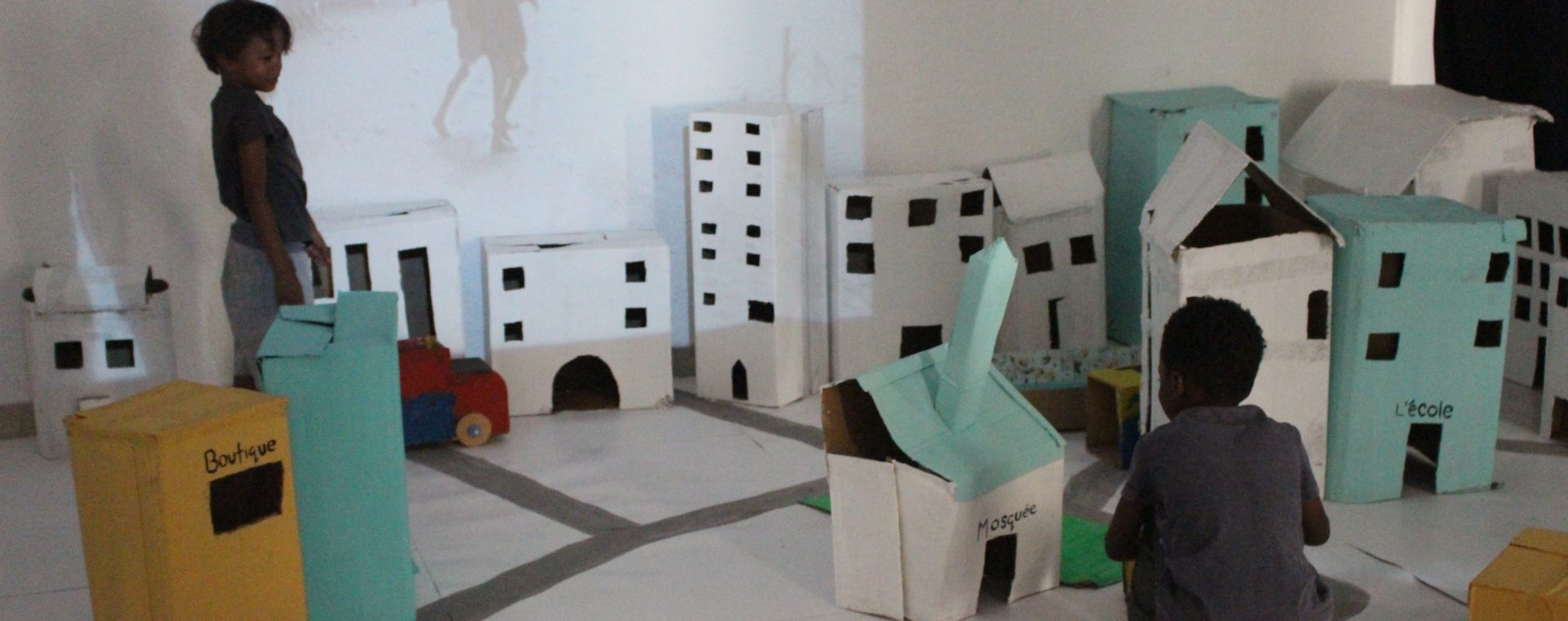
In 2015, 40 percent of Africa’s population lived in cities. By the late 2030s, more than half of Africa’s population will call urban areas home. With over 60% of its population under the age of 25, the ability of West African cities to nurture learning and wellbeing for all its citizens has immediate consequences for the economic, political and social wellbeing of the continent overall. While the COVID-19 pandemic dealt a devastating blow for West Africa’s already failing, heavily bureaucratic educational systems to deliver quality education, particularly to low-income children, cities and communities offer opportunities to fill many of these learning gaps, particularly for young learners. Yet for many of the already underfunded grassroots organizations and local education nonprofits, budgets to successfully champion the policy change this necessitates are nonexistent.
In 2018, Imagination Afrika, a Dakar-based social enterprise working on innovative learning solutions, partnered with Bernard Van Leer’s Urban95 initiative to create a toolkit to support local organizations in their advocacy efforts for better urban learning environments and ecosystems. Below are 3 ideas stemming from this toolkit on how to creatively advocate with little means.
1. Involve young children to better understand their perspectives.
Imagination Afrika partnered with 3-year-olds Soukeyna, Antou, and Amadou (and their parents) to film a series of videos to showcase the city from their point of view. Using GoPros, Amadou, Soukeyna and Antou narrated their experiences moving through a variety of public spaces including a marketplace, a health center, a public play-space, even on local transport. These videos helped local government, community influencers and policymakers understand what learning journeys could be and weren’t yet for Dakar’s youngest citizens. Across the continent organizations like South Africa’s Play Africa, Rwanda’s Playhub, and Ghana’s Mmofra Foundation also work directly with children to use play and design thinking to co-create livable learning public spaces.
WHAT YOU NEED: Parents and children’s consent; great facilitators; low-cost mobile telephones to film.
2. Think out of the box when developing/ coalitions/alliances to diversify the range of organizations and actors who can articulate the message of change and reach non-traditional audiences.
Finding partners who can advocate for cities and ecosystems that nurture learning, means thinking beyond the usual suspects already present in education and child-centered organizations. Because Dakar is home to a number of innovative tech startups, Imagination Afrika partnered with two tech startups: Firefly Digital Media who helped us create an interactive digital media campaign, advocating the importance of play and public playspaces for parents on city buses; and Yux Design whose LOOKA mobile app helped us to collect quantitative and qualitative data on both the lived experiences of parents and caregivers and the current capacity of public spaces to support children and their learning. These partnerships have been win-win: we have built the capacity of these organizations to address the needs of parents and children while opening up new business opportunities for them with nonprofits, and we learned how to integrate digital media and mobile applications as additional resources in our advocacy work. The end result, two new champions for children and urban learning spaces and ecosystems and important data on parents and children in Dakar.
WHAT YOU NEED: Map your environment. Partners could include civic organizations working on quality of life issues like pollution; local women’s associations. Local colleges and technical schools are also a great space to connect with young social entrepreneurs.
3. Data, data, data. There just isn’t enough data on urban environments and their capacity to support children’s learning.
A data-centered approach brings credibility to any advocacy effort. It is often the impartial proof that is needed to influence and spur both communities and decision-makers into action. YUX Design partnered with us to use human-centered design to collect and share data on the lived experiences of over three hundred babies and their caregivers in Dakar and understand the implications for early learning. A second data collection effort with YUX helped us understand the priorities and needs of over 1000 urban parents (including how to support children’s learning). This data formed the base of our advocacy in the communities the data was collected in, with local governments, as well as with emerging new partners such as architectural firms and other organizations working on redesigning public spaces for play and learning. Sharing data with the media also helped to bring attention to the question of cities, children, and learning through a series of well-publicized articles in leading national papers.
WHAT YOU NEED: Human-centered design. The strengths of community-based organizations are their proximity to communities and their abilities to notice and name constraints, contexts, and needs. HCD is a low-cost, accessible way to collect qualitative data in a participative manner and share it with communities to help build solutions.
While support for African grassroots organizations should remain a funding priority, investment in creative advocacy strategies that center children’s voices, develop nontraditional partnerships and integrate data, facilitate the development of ecosystems championing for stronger African cities for all children. This is certainly the best investment for all.


